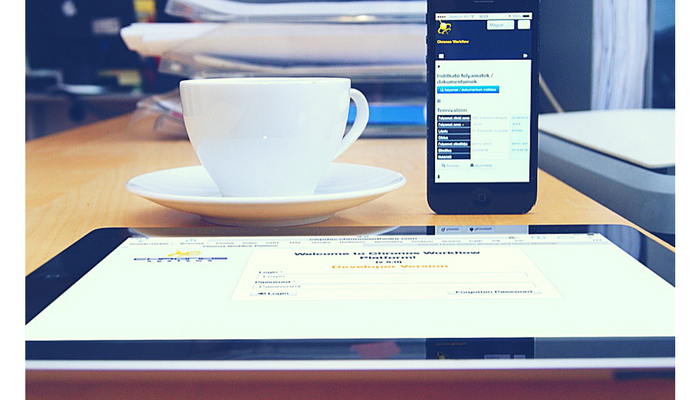
Gone are the days when workers functioned while sitting at the office desk. Nowadays, the scenario is totally contrasting because of the proliferation of mobile devices. Earlier it was expected to travel to office, work for hours and drive back home. However, the boost in mobile technology enabled the workforces to comfortably work, attend meetings and collaborate with peers from any location. Also, numerous apps available in the market have significantly contributed towards collaboration and engagement of the workforces within an enterprise. As a result, there are over millions of mobile workers across the globe and the number will always keep increasing.
In an enterprise, the rise of digital workers is no more a drift but future. Enterprises that empower workforce mobility are reaping the benefits by achieving their business goals and are competitive in the marketplace. Adopting mobility leads to increased productivity, agility and job satisfaction resulting into enriched and enhanced business performance.
Here are few detailed reasons why enterprises must opt for workforce mobility –
- Cost – Adopting workforce mobility can reduce commutation costs. Using efficient collaboration tools like SharePoint can result in increased productivity too. Furthermore, if all of your employees are working from home, need of investing into office infrastructure is reduced.
- Security – Lately, security concerns for cloud and mobile have been improving thoroughly. Hence, employees can now securely and remotely manage the work without any geographical limitations. The data security between company servers and mobile devices can be encrypted by following a suitable approach.
- Productivity and efficiency – Every enterprise’s primary goal is to increase productivity by utilizing fewer resources. Workforce mobility enables the enterprises to track the progress of the employees and also assign the work remotely which ultimately saves lot of time by increasing the productivity. It also helps in increasing the efficiency by eliminating extra processes and activities.
Even though enterprises have adopted mobility, it is extremely essential to involve the workforces by communicating and supporting them to get the work done and maximize the productivity. Below are few points which provides insights on how to strategize and keep your workers engaged.
- Having a robust cloud-based management platform like SharePoint is must to enable the members of the team track their work and collaborate with peers.
- Communicating occasionally with the remote team face to face or via a video call helps the workers to feel more engaged and involved. The direct communication makes them feel more associated to the company and helps them to move forward.
- It is essential to communicate the objectives and expectations clearly and effectively. Also focusing on objectives and result rather than processes can help in gaining trust of the employees.
However, offering an offline access can facilitate the employees working remotely to access valuable information in absence of network connectivity. Offline capability enables auto synchronization which allows edited or updated file to sync automatically whenever network connectivity is available. Hence if, workforce mobility with offline capability is equipped efficiently, can lead to increase productivity and encourage a happy working environment.


